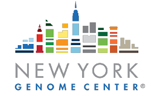Submitted by ja607 on
| Title | Association of Rare Pathogenic DNA Variants for Familial Hypercholesterolemia, Hereditary Breast and Ovarian Cancer Syndrome, and Lynch Syndrome With Disease Risk in Adults According to Family History. |
| Publication Type | Journal Article |
| Year of Publication | 2020 |
| Authors | Patel, AP, Wang, M, Fahed, AC, Mason-Suares, H, Brockman, D, Pelletier, R, Amr, S, Machini, K, Hawley, M, Witkowski, L, Koch, C, Philippakis, A, Cassa, CA, Ellinor, PT, Kathiresan, S, Ng, K, Lebo, M, Khera, AV |
| Journal | JAMA Netw Open |
| Volume | 3 |
| Issue | 4 |
| Pagination | e203959 |
| Date Published | 2020 04 01 |
| ISSN | 2574-3805 |
| Keywords | Aged, Cohort Studies, Colorectal Neoplasms, Hereditary Nonpolyposis, Female, Genetic Predisposition to Disease, Hereditary Breast and Ovarian Cancer Syndrome, Heterozygote, Humans, Hyperlipoproteinemia Type II, Male, Middle Aged, Pedigree, Proportional Hazards Models, United Kingdom, Whole Exome Sequencing |
| Abstract | Importance: Pathogenic DNA variants associated with familial hypercholesterolemia, hereditary breast and ovarian cancer syndrome, and Lynch syndrome are widely recognized as clinically important and actionable when identified, leading some clinicians to recommend population-wide genomic screening. Objectives: To assess the prevalence and clinical importance of pathogenic or likely pathogenic variants associated with each of 3 genomic conditions (familial hypercholesterolemia, hereditary breast and ovarian cancer syndrome, and Lynch syndrome) within the context of contemporary clinical care. Design, Setting, and Participants: This cohort study used gene-sequencing data from 49 738 participants in the UK Biobank who were recruited from 22 sites across the UK between March 21, 2006, and October 1, 2010. Inpatient hospital data date back to 1977; cancer registry data, to 1957; and death registry data, to 2006. Statistical analysis was performed from July 22, 2019, to November 15, 2019. Exposures: Pathogenic or likely pathogenic DNA variants classified by a clinical laboratory geneticist. Main Outcomes and Measures: Composite end point specific to each genomic condition based on atherosclerotic cardiovascular disease events for familial hypercholesterolemia, breast or ovarian cancer for hereditary breast and ovarian cancer syndrome, and colorectal or uterine cancer for Lynch syndrome. Results: Among 49 738 participants (mean [SD] age, 57 [8] years; 27 144 female [55%]), 441 (0.9%) harbored a pathogenic or likely pathogenic variant associated with any of 3 genomic conditions, including 131 (0.3%) for familial hypercholesterolemia, 235 (0.5%) for hereditary breast and ovarian cancer syndrome, and 76 (0.2%) for Lynch syndrome. Presence of these variants was associated with increased risk of disease: for familial hypercholesterolemia, 28 of 131 carriers (21.4%) vs 4663 of 49 607 noncarriers (9.4%) developed atherosclerotic cardiovascular disease; for hereditary breast and ovarian cancer syndrome, 32 of 116 female carriers (27.6%) vs 2080 of 27 028 female noncarriers (7.7%) developed associated cancers; and for Lynch syndrome, 17 of 76 carriers (22.4%) vs 929 of 49 662 noncarriers (1.9%) developed colorectal or uterine cancer. The predicted probability of disease at age 75 years despite contemporary clinical care was 45.3% for carriers of familial hypercholesterolemia, 41.1% for hereditary breast and ovarian cancer syndrome, and 38.3% for Lynch syndrome. Across the 3 conditions, 39.7% (175 of 441) of the carriers reported a family history of disease vs 23.2% (34 517 of 148 772) of noncarriers. Conclusions and Relevance: The findings suggest that approximately 1% of the middle-aged adult population in the UK Biobank harbored a pathogenic variant associated with any of 3 genomic conditions. These variants were associated with an increased risk of disease despite contemporary clinical care and were not reliably detected by family history. |
| DOI | 10.1001/jamanetworkopen.2020.3959 |
| Alternate Journal | JAMA Netw Open |
| PubMed ID | 32347951 |
| PubMed Central ID | PMC7292735 |
| Grant List | K24 HL105780 / HL / NHLBI NIH HHS / United States UM1 HG008895 / HG / NHGRI NIH HHS / United States R01 HL128914 / HL / NHLBI NIH HHS / United States T32 HL007208 / HL / NHLBI NIH HHS / United States MC_PC_17228 / MR / Medical Research Council / United Kingdom R01 HL092577 / HL / NHLBI NIH HHS / United States MC_QA137853 / MR / Medical Research Council / United Kingdom K08 HG010155 / HG / NHGRI NIH HHS / United States R01 HG010372 / HG / NHGRI NIH HHS / United States |




